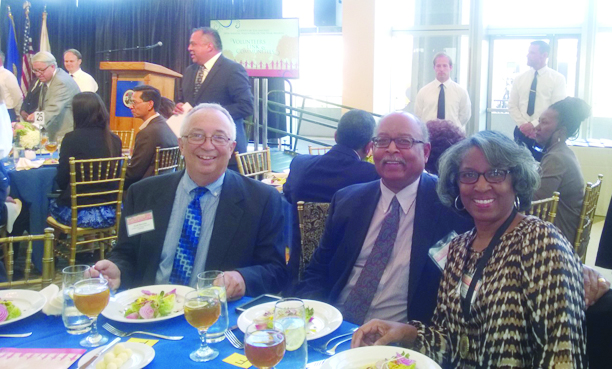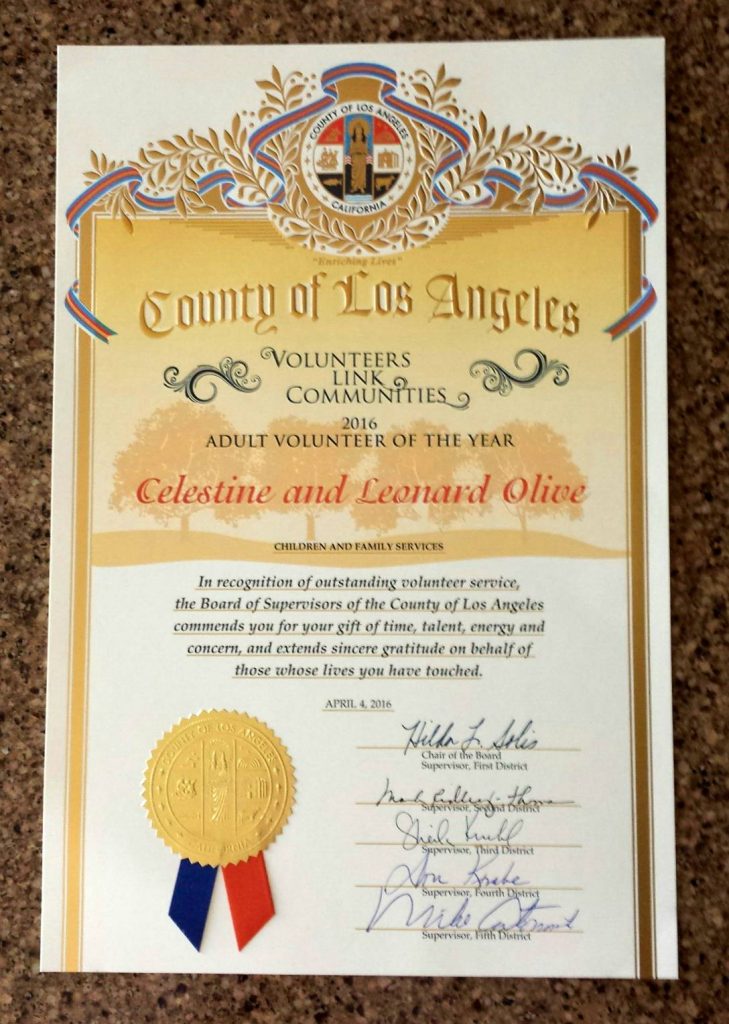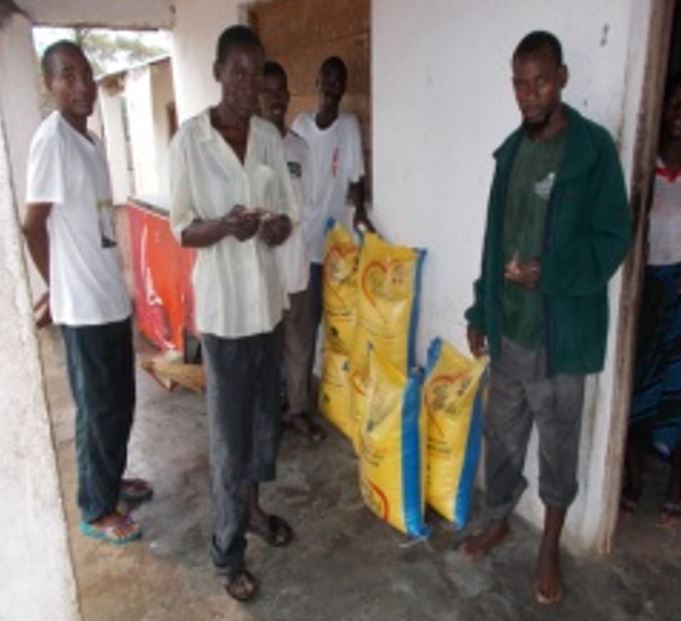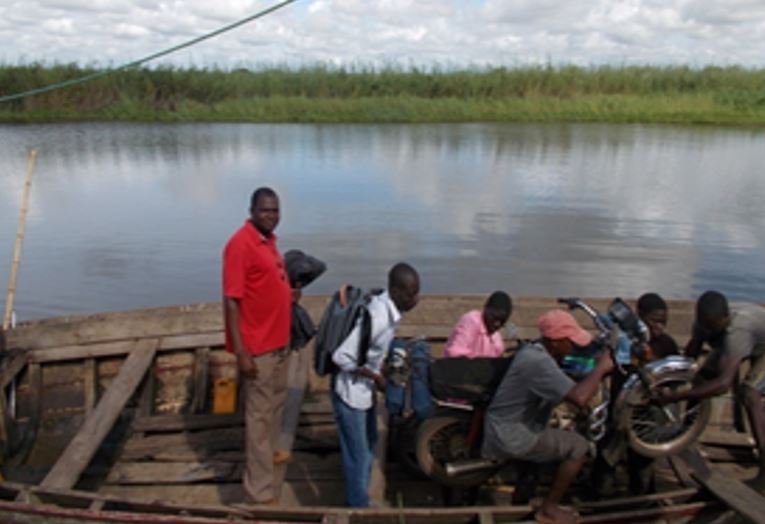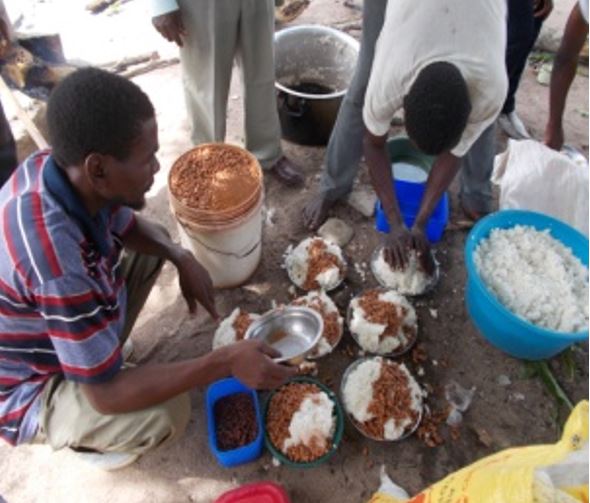Dear Brothers and Sisters,
 You’ve probably seen movies and TV shows where the local preacher’s role in the community is more like a sheriff than a pastor. That was the case in the movie Footloose. Amidst snappy tunes and the near-acrobatic dancing of the high school’s senior class, the local preacher, being dead-set against dancing, seemed to have a lock on being the town’s moral policeman. Though eventually he relented (even buying his daughter a corsage for the graduation dance), the point was made—in our world, clergy are often viewed as sheriffs, not shepherds.
You’ve probably seen movies and TV shows where the local preacher’s role in the community is more like a sheriff than a pastor. That was the case in the movie Footloose. Amidst snappy tunes and the near-acrobatic dancing of the high school’s senior class, the local preacher, being dead-set against dancing, seemed to have a lock on being the town’s moral policeman. Though eventually he relented (even buying his daughter a corsage for the graduation dance), the point was made—in our world, clergy are often viewed as sheriffs, not shepherds.
Moral police or loving shepherds?

(used with artist’s permission)
In times past, pastors often did function as moral police. Thankfully, those days are largely gone, except (regrettably) in cults that seek to control their members. That being said, I’m well aware that when the frustrations of being a pastor mount up (and they do!), we pastors can feel like the ones pictured in the cartoons below. If we’re not careful, we can momentarily forget that our calling is to participate with Jesus, the great Shepherd, in his ministry that extends to his sheep the transforming love and grace of God.
In the late 1980s, my father Joseph W. Tkach led a conference with the theme, We are shepherds, not sheriffs. He pointed out that pastors are called to be “helpers of their joy” rather than “contributors to their hurts.” He urged our pastors to focus on affirming and encouraging rather than on confronting and rebuking. I extend my heartfelt thanks to all our pastors for helping us make that important transition.
Don’t give in to the pressure

It certainly is a challenging time to be a pastor. Multiple pressures conspire to discourage if not overwhelm the faith of our members. Those pressures include worldviews hostile to the gospel, including the increasingly strident atheistic minority that rails against anything resembling Christianity. Then there is the desire of media to placate minority viewpoints in order to be politically correct. This frequently leads to media blitzkriegs against traditional moral values.
Some pastors react to these pressures by crying out with indignation about the sins of the nation. Sometimes they cry out about the sins of the members in an effort to get their people “back on track.” But indignant approaches like these are not what God has called us to as pastors. As Dietrich Bonhoeffer reminded the pastors-in-training at his underground seminary during the days of Hitler, the church already has an accuser—his name is Satan. Another one is not needed!
Helping people change
Certainly we need to be aware of the impact societal trends have on the hearts and minds of our members. We need to realize that they can become discouraged and question their faith and calling. We also need to understand that people slip and make bad decisions that lead them into sin. But this is when people need encouragement, not hurtful exhortation. I ask all our pastors and ministry leaders to continually remind our members of who Christ is and of who they are in Christ. It is in this knowledge of their true identity in Christ that they will find comfort and the desire to change the way they think (repentance), experiencing greater fervency in their communion with God.

As church leaders affirm, encourage and otherwise build up their members, they participate in what Jesus, by the Spirit, is doing to speak the truth in love, including offering needed correction, and also showing how they may use their spiritual gifts and other Christ-like qualities in God’s service. When we join Christ in that work, we are helping people grow as vital members of his body, the church.
How do affirmation and encouragement help people grow? Largely by providing a positive, nurturing environment in which people thrive spiritually. This is the relational, disciple-making method of Jesus—an approach vital for us at a time when many of our pastors are nearing retirement. We need to help men and women develop spiritually, thus enabling them to hear and obey God’s call to Christ’s service. Because we need many new pastors and ministry leaders to help us on our continuing journey of renewal, I call on all pastors and ministry leaders to make identifying and developing new leaders a high priority. Please keep your eyes wide-open for men and women whose hearts are inclined toward being pastors who are shepherds, not sheriffs.
Barnabas’ example
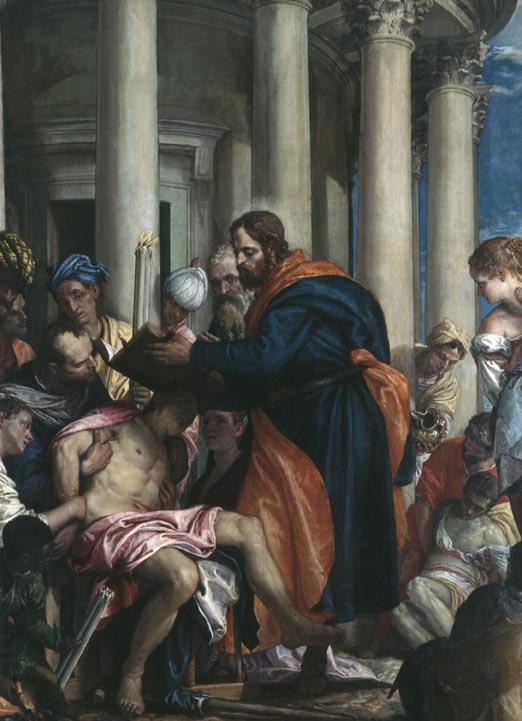
(public domain via Wikimedia Commons)
When I’m asked to define the model New Testament pastor, I often mention Barnabas. According to the book of Acts, though his birth name was Joseph, the apostles nicknamed him Barnabas, which means “son of encouragement” (Acts 4:36). There are multiple examples in Acts of Barnabas reaching out to encourage people who others withdrew from. Barnabas was one of the first disciples to accept Paul (the persecutor of Christians!) as a genuine follower of Jesus (Acts 9:26-27). Later, Barnabas brought encouragement to the gentile converts in Antioch who were being shunned by some Christians because they were not strictly conforming to the Law of Moses. Instead of withdrawing, Barnabas “saw what the grace of God had done” and “encouraged them all to remain true to the Lord with all their hearts” (Acts 11:23).
Paul, who was mentored by Barnabas, wrote this concerning joining Jesus in being an encourager in the lives of others:
For whatever was written in former days was written for our instruction, that through endurance and through the encouragement of the Scriptures we might have hope. May the God of endurance and encouragement grant you to live in such harmony with one another, in accord with Christ Jesus, that together you may with one voice glorify the God and Father of our Lord Jesus Christ. (Romans 15:4-6 ESV)
Finally, brothers, whatever is true, whatever is honorable, whatever is just, whatever is pure, whatever is lovely, whatever is commendable, if there is any excellence, if there is anything worthy of praise, think about these things. (Philippians 4:8 ESV)
God’s priority
Based on the Bible’s creation accounts, I think we can say that giving affirmation is central to the way God infuses his creation with abundant life. On each day of creation week in Genesis, God declared the goodness of a certain aspect of his creation. The beautiful, poetic language used in these verses powerfully reminds us that we serve a God who gives high priority to offering encouragement and affirmation. When we join him in that, we participate in his life-giving ministry—a ministry that began at creation and continues today in and through his church.
Thank you sisters and brothers for your dedication to sharing actively in what Jesus is doing, by the Spirit, to extend the Father’s transforming love and grace to his beloved children. Thank you for being shepherds, not sheriffs.
Loving serving as a shepherd with you,
Joseph Tkach

